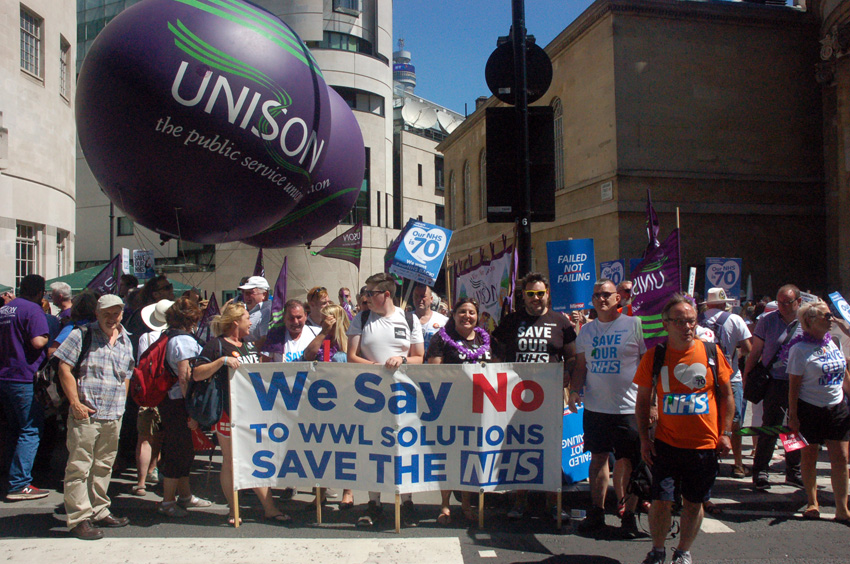
A DANGEROUS phone triage scheme for A&E at Wales’ largest hospital is to be launched tomorrow in which patients are expected to ring before turning up. Their call will be answered by a receptionist rather than a medical professional, then they will be ‘assessed’ over the phone as to whether they should come in or stay at home!
From Wednesday, patients without life-threatening illnesses will have to call ahead to be assessed by a clinician, in a bid to stop overcrowding at Cardiff’s University Hospital of Wales.
Sherard Le Maitre the medical director said the project would be permanent and would be copied across Wales.
The scheme, known as CAV 24/7, will need to be used by anyone in the Cardiff and Vale University Health Board area who believes they need to attend A&E at University Hospital of Wales (UHW).
The clinician will triage the patient and allocate them a slot at the Emergency Unit or Minor Injuries Unit if required. If an appointment is not needed they will be given advice on other options.
Dr Le Maitre said: ‘This is not a flash in the pan for the pandemic. This is something that’s going to be the future for emergency units, not only here for Cardiff and Vale but hopefully something we could look at for a wider roll out across Wales.’
He added: ‘This is definitely the future and the way forward. Every health board is going to be at different stages and abilities to roll something like this out.’
Patients who call CAV 24/7 will speak to a call handler trained to take information and recognise any urgent or emergency symptoms that may involve redirecting them to 999.
Someone with a ‘non life-threatening condition’ will receive a call back from a nurse, paramedic or GP within 20 minutes, with hopes the service will eventually be expanded to include physiotherapists.
If an appointment is ‘not needed’ they will be ‘given advice,’ but those needing an appointment at an emergency or minor injuries unit will be given a time slot based on capacity at the site using a digital appointment system.
Patients who physically attend either UHW or the minor injuries department in Barry without first booking an appointment or being brought by ambulance will be assessed by a clinician at their entrances and directed to the appropriate place.
The CAV 24/7 triage centre will be based at Cardiff Royal Infirmary, where an additional 20 triage nurses have been employed to help patients over the phone.
Anna Athow, BMA member, said: ‘This sets up a very dangerous precedent – that it is possible for non-medically trained call handlers to be making crucial clinical decisions over the phone, as to which patient has a life threatening illness and which doesn’t.
‘If they make the wrong decision and the patient has to wait for a nurse or physio or unknown GP to phone them back, precious time may be lost. Moreover there is scope for further mistakes to be made over the phone a second time.
‘A third level of delay is built in, by stating that electronic booking time is dependent on capacity of the receiving units rather than the urgency of the condition.
‘At the end of these three levels of delay, the patient could be dead.
‘The one place in the health service currently, where the patient retains the right to physical access to urgent health care, is A&E. A&E is the last port of call for a sick patient. That right must be maintained.
‘Trained emergency doctors with PPE, must be there to triage and assess emergency patients, in special facilities. This is the only way to prevent serious cases being missed.’